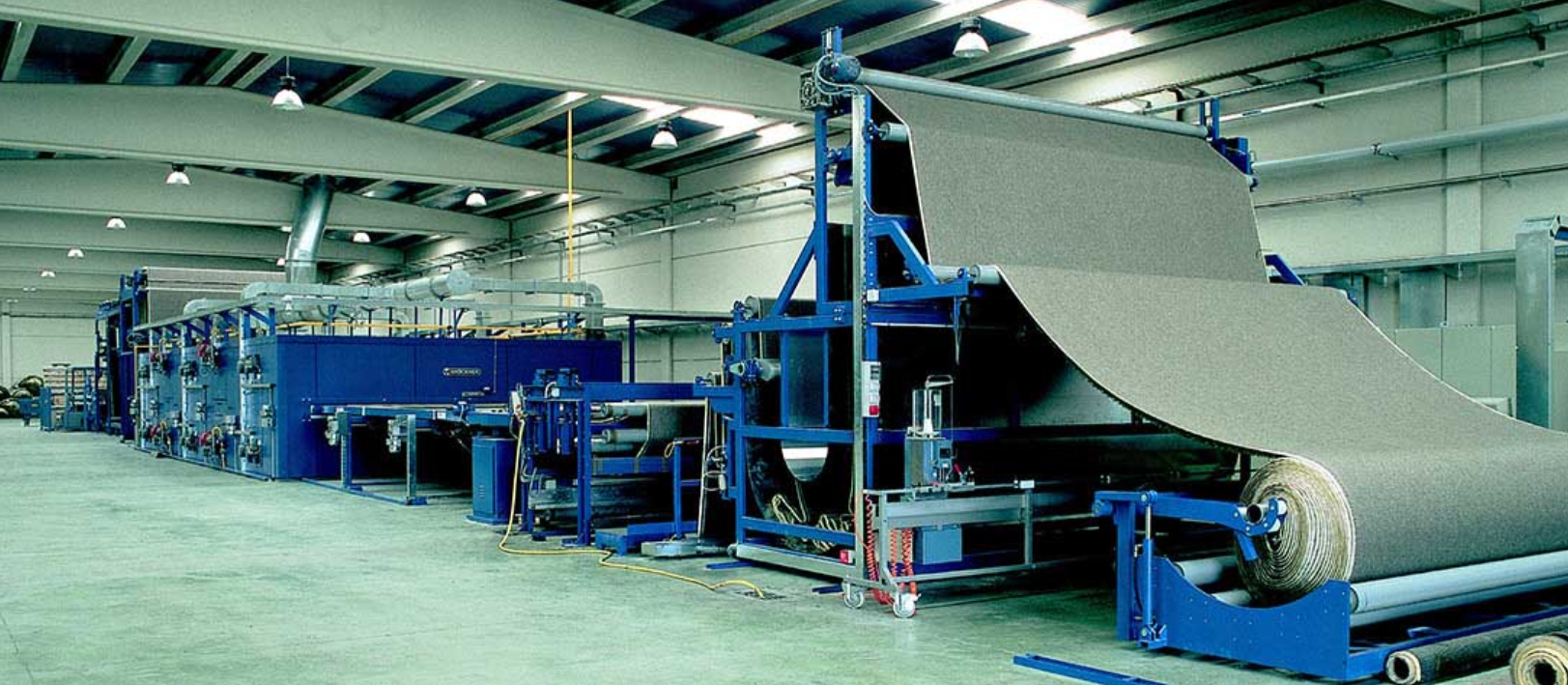The textile industry, a bedrock of global commerce, is undergoing a profound transformation. From traditional handlooms to cutting-edge automated factories, the evolution of textile machinery has consistently been at the heart of this progress. Today, as consumer demands shift towards sustainable practices, personalized products, and faster fashion cycles, the textile machinery market is responding with a wave of innovation, embracing digitalization, automation, and eco-friendly solutions.
This blog explores the dynamic landscape of the global Textile Machinery Market, delving into its significant growth drivers, key technological advancements, and the pivotal role it plays in shaping the fabric of our future.
Market Segmentation
By Type
- Spinning Machinery
- Weaving Machinery
- Knitting Machinery
- Textile Processing Machinery
- Finishing Machinery
By End-user
- Cotton Mill
- Garment Factory
- Wool Mill
- Textile Industry
By Offering
- Equipment
- Component and Service
Market Size and Growth: A Solid Trajectory
This market size is projected to reach US$ xxx billion by 2031, and it is estimated to grow at a CAGR of xx% from 2023 to 2031.
Key Market Trends: Smart, Sustainable, Specialized
- Automation and Industry 4.0 Integration: The most significant trend is the rapid adoption of automation, robotics, and Industry 4.0 (Textile 4.0) technologies. This includes IoT-enabled sensors for real-time monitoring, AI for quality control and predictive maintenance, and data analytics for optimized production. The goal is to enhance efficiency, reduce labor costs, minimize errors, and enable mass customization.
- Sustainability and Eco-Friendly Machinery: With increasing environmental concerns and consumer demand for sustainable products, there's a strong push for machinery that reduces environmental impact. This involves innovations in water-saving dyeing machines, energy-efficient motors, waste reduction technologies, and machinery capable of processing recycled fibers or natural, organic materials.
- Growth of Technical Textiles: The demand for technical textiles (used in industries like automotive, healthcare, construction, sports, and protective wear) is soaring due to their superior performance characteristics. This drives the need for highly specialized textile machinery capable of producing these advanced materials efficiently and cost-effectively.
- Digitization in Design and Production: Digital technologies are revolutionizing textile design (CAD software, 3D simulation) and production (digital printing). Digital printing, in particular, offers greater design flexibility, faster turnaround times, and reduced water/chemical consumption compared to traditional methods.
- Fast Fashion and Customization Capabilities: The "fast fashion" trend, coupled with a growing desire for personalized products, puts pressure on manufacturers to produce diverse textile products quickly. Modern textile machinery, especially automated and digitalized systems, enables rapid design changes, shorter production cycles, and efficient small-batch manufacturing.
Market Growth Relatable FAQs:
- Q: How does the "increasing demand for automation and Industry 4.0 integration" primarily drive the growth of the Textile Machinery Market?
- A: Automation and Industry 4.0 technologies (like IoT and AI) enable textile manufacturers to significantly enhance production efficiency, reduce labor costs, minimize errors, and improve product quality. This helps meet the demands for faster production cycles and diverse products, making automated machinery a crucial investment for competitiveness and directly boosting market growth.
- Q: What role does the "growing focus on sustainability and eco-friendly practices" play in shaping the Textile Machinery Market?
- A: Environmental concerns and consumer preferences are pushing the textile industry towards more sustainable production. This translates into demand for textile machinery that reduces water and energy consumption, minimizes waste, and can process recycled or eco-friendly materials. Manufacturers are innovating to meet these demands, creating a market for "green" machinery and fostering sustainable growth.
- Q: How does the "rising demand for technical textiles" specifically influence the Textile Machinery Market's expansion?
- A: Technical textiles, used in high-performance applications (e.g., automotive, medical, protective wear), require specialized machinery capable of handling advanced fibers and intricate manufacturing processes. As industries increasingly adopt these functional textiles, the demand for sophisticated and precision-engineered textile machinery tailored for technical textile production sees significant growth, creating new market segments.
- Q: What impact do "government initiatives and investments in the textile sector, particularly in Asia Pacific," have on the textile machinery market?
- A: Governments in regions like Asia Pacific (e.g., India's PLI scheme, PM MITRA parks) are actively promoting their domestic textile industries through subsidies, infrastructure development, and technology upgrade schemes. These initiatives directly incentivize textile manufacturers to invest in new, modern machinery to boost production capacity, improve quality, and enhance global competitiveness, thereby fueling substantial market growth in these regions.
- Q: How do "shifting consumer preferences, such as fast fashion and customization," contribute to the demand for advanced textile machinery?
- A: The rapid pace of fashion trends ("fast fashion") and the increasing desire for personalized apparel require textile manufacturers to be highly agile and flexible. Advanced textile machinery, equipped with digital design capabilities, automated processes, and efficient changeover mechanisms (e.g., digital printing, flexible looms), enables quicker production cycles and economical small-batch customization, making it indispensable for meeting these evolving consumer demands.
Conclusion: Weaving a Smarter, Greener Future
The global Textile Machinery Market is a cornerstone of the vast textile industry, continually evolving to meet the complex demands of a rapidly changing world. Driven by technological breakthroughs, a commitment to sustainability, and the relentless pursuit of efficiency, modern textile machinery is not just producing fabrics – it is weaving a smarter, more sustainable, and highly responsive future for textiles worldwide.



